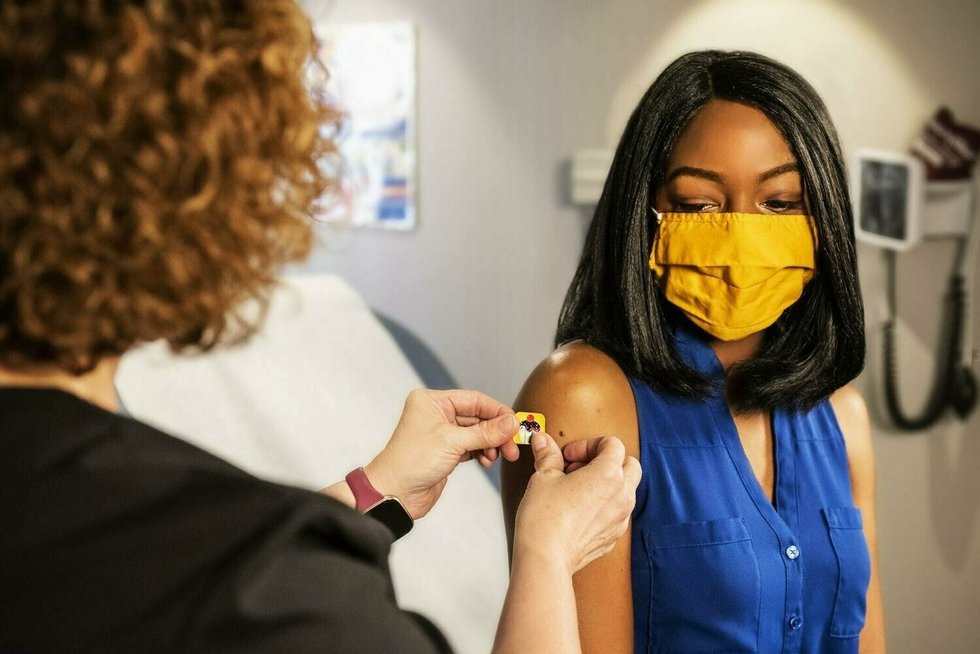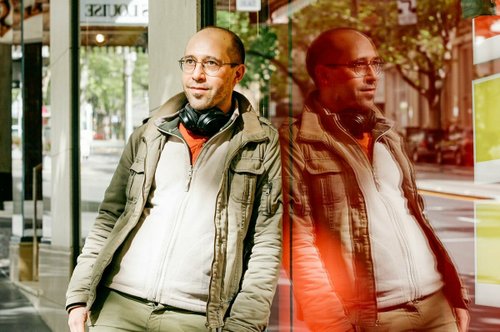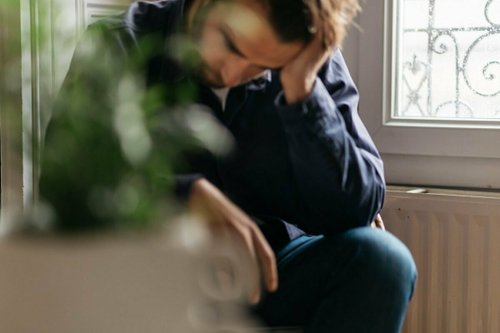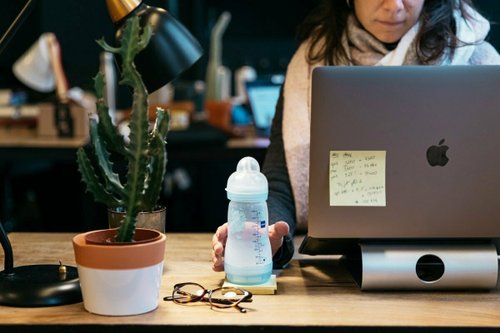Debate: Should we mandate vaccines in the workplace?
Mar 01, 2022
7 mins


Journalist
As Covid-19 swept through America and hospitals overflowed, ethical discussions usually confined to the halls of academe suddenly began to have very real implications. When ICU beds and ventilators ran out, doctors and nurses were forced to make one tough choice after another in the course of triage. And when authorities made the panicked decision to lock US citizens inside their homes, the central question for society became how to balance public-health risks with our right to liberty.
Now, however, the discussion has acquired a heightened emotional voltage: it’s becoming less about the state and its citizens and more about the vaccinated versus the unvaccinated. And nowhere is the debate more fraught than in the workplace.
When, in January, the Supreme Court blocked a federal mandate requiring workers to be vaccinated or test weekly in businesses with 100 or more employees, companies across the country were largely left to set their own policies to protect workers.
With that, new and urgent questions arose: are employee vaccination passports discriminatory? Is granting more power to businesses setting a dangerous precedent? And how will such a policy affect society’s most vulnerable? To get a better idea, we asked two bioethicists to help us unpack the arguments on both sides and explain the ethical principles underpinning our public-health policy. Vardit Ravitsky is president of the International Association of Bioethics and a part-time senior lecturer in global health and social medicine at Harvard Medical School. Matthew Liao is the director of the Center for Bioethics and an affiliated professor in the department of philosophy at New York University.
Does a no-jab, no-job policy equal discrimination?
In May 2021, just 5% of US workers said their employer required them to be vaccinated as a condition of employment. According to a Gallup survey, that number increased to 19% in August 2021, 29% in September and 36% in December. While 14 states currently prohibit any sort of Covid-19 vaccine mandate, millions of unvaccinated workers still face either the no-jab, no-job dilemma or restricted office access.
The same survey also shows that while an estimated 25% of workers remain unvaccinated against Covid-19, an even larger group opposes mandated inoculation in the workplace: 35% of workers were against in December 2021, while 55% were in favor.
These numbers represent the deepening divide between one group arguing for the right of employees to a safe work environment and another that feels a blanket employment ban on the unvaccinated is a discriminatory measure.
“Here you have two groups, two populations,” says Ravitsky. “One is gaining more and more privileges and liberties, while the other is being more and more restricted.”
While the conflict between the common good and individual liberty is the core ethical tension underlying any public-health intervention, the vaccination debate brings in questions of equality, justice, and discrimination.
But, as Ravitsky points out, democratic societies always discriminate on some level. For example, barring a blind person from getting a driver’s license is discriminatory in principle as it restricts the freedom of a minority, but it is deemed to be justified to protect other drivers. In the same way, protecting co-workers from infection and limiting the burden on the healthcare system are widely considered to be justified reasons for unequal treatment.
For Liao, the term “discrimination” may even be misplaced in the context of vaccine passports. He points out that while it is a technical term with different moral and legal implications, we typically take discrimination to mean the unfair treatment of various protected groups based on race, gender, or sexual orientation. In that sense, mandated vaccination in the workplace doesn’t equal discrimination as such. The policy applies to everyone—all people have the ability, in principle, to be vaccinated (apart from those who can’t be vaccinated for medical reasons.) “I think people who don’t want to get vaccinated wish the policy were a bit more discriminatory and left them out, rather than just applying universally,” Liao says.
But a more legitimate worry might be that closing the office doors to the unjabbed could have an adverse effect on the socio-economically disadvantaged—lower-income brackets appear to have a higher share of unvaccinated people, according to a 2021 US Census Bureau survey released in July. Another dividing line is education, with an updated survey from October showing that people without a high-school diploma had the lowest vaccination rates, at 73.4%, while for those with a bachelor’s degree or higher, it was 92%.
While many white-collar workers can set up a home office and pay for childcare to maintain steady productivity, some socially disadvantaged people don’t have the means to do so—and so will be more seriously affected by vaccine mandates. But for Liao, inequality is better waged as an argument in favor of mandating vaccination.
Many low-income workers are employed in grocery stores, restaurants, or the gig economy and have a higher chance of exposure to the virus on a day-to-day basis—an issue that became apparent in the early days of the pandemic. As workplace vaccination policies are part of a broader quest to limit loss of life and increase vaccination rates, these workers might in fact stand to benefit the most. “For equity reasons, it seems like a really good reason to vaccinate yourself so that you can make sure that these workers don’t get sick,” Liao says.
Ravitsky also feels that there’s a flipside to the equity argument that was established long before the pandemic: namely that the burden of reducing harm should not fall inequitably on the shoulders of one group, in this case, the part of the population choosing to get vaccinated in order to reduce the spread of the virus. “If most of the population is vaccinated against measles, this disease will almost disappear,” Ravitsky says “The tiny minority who refuses to vaccinate their children will be free riders on this herd immunity.”
Are we on a slippery slope?
Another fear voiced by the vaccine-resistant is that allowing vaccine passports now will lead to more draconian measures in the future: after all, first it was nightclubs, then offices. Where will it stop?
And indeed, there is always a risk in ceding too much power to authorities, whether that’s governments or corporations. As Liao points out, companies already wield power over employees, including the right to conduct camera surveillance or gather personal data. And yet, he still considers “slippery-slope arguments” to be just that: slippery.
After all, vaccine mandates themselves aren’t news; they’ve long been in effect in many industries. Taking his own workplace as an example, Liao says that NYU has long required incoming students to have certain vaccinations such as rubella and measles. “So they are not exercising any powers that they didn’t have before,” he says. The situation would have been very different if employers themselves were forcing the vaccine upon people, Liao says, rather than merely setting an office policy to protect the health of the workers.
“Nobody is going around jabbing you in Western liberal societies. They are saying, ‘Get the vaccination, otherwise you can’t work here.’ So it’s not infringing on your bodily autonomy,” Liao says.
Ravitsky, too, questions the logic of the slippery-slope fear, arguing that restrictions are constantly updated in proportion to the harm they’re meant to mitigate. For example, if an employer demands face-to-face customer-service staff to be vaccinated, but not those working from home, it’s not a slippery slope but rather a cost-benefit analysis. They can say, “This is a measure that we’re employing now, because of Omicron, because of infection rates, because of the pressure on the healthcare system. The second they’re not justified any more, they’re gone,” she says.
She points out that this cost-benefit analysis has guided healthcare policy throughout the pandemic without leading to more draconian measures. When schools around the country closed their doors, for instance, it had a harmful effect on children’s mental health%20among%20children%20and), may have increased levels of domestic abuse, and meant some would lack access to good nutrition while isolated at home. And yet the risk was considered justified at the time.
When it’s a matter of limiting massive loss of life, social risks are put on the back burner—but only until the equation changes. “Now that things are stabilized, these considerations, such as kids’ safety, mental-health care and nutrition, become central again,” says Ravitsky.
Where do we go from here?
In the beginning, the pandemic brought the collateral benefit of a strong sense of public unity. But those days now seem increasingly distant as the social fault lines continue to deepen.
Indeed, while Omicron has conspired to bring our soaring vaccine expectations back to earth—the variant, though less deadly, has spread rapidly in highly vaccinated countries—the divide between those refusing the jab and the rest has caused the public debate to become increasingly vitriolic. “The sense of solidarity turned into frustration, and then anger,” Ravitsky says. “And that is breaking social fabric, because now it’s us and them, the good and the evil.”
Both Liao and Ravitsky believe that having discussions on ethics, and better communicating the rationale behind health policy decisions, is a crucial part of keeping the social climate from turning increasingly sour.
Governments have so far largely relied on scientific arguments to justify their actions: we need a booster shot because studies show that immunity wears off, or we need to restrict access to bars and clubs as we’re experiencing a spike in infection rates. And as Liao says, getting all the facts right is hard enough.
But at the same time, we also need the public to understand the ethical principles behind the decisions, whether they are made by governments or employers. “We presume that people will understand the rationale,” Liao says. “But given the polarization of politics, I don’t think we should take that for granted.”
In addition, Ravitsky points out that while public-health law and constitutional rights have played a crucial role in this pandemic, ethical principles provide a more solid ground for debate at a time when the speed of change is outpacing our ability to draw firm conclusions about the legality of certain policies.
“At some point courts will start deciding, and we’ll have case law on this,” Ravitsky says. “But it’s not straightforward. So I think it’s better to rely on an ethical social debate as you’re rolling out public-health measures that change every week.”
Photo: Welcome to the Jungle
Follow Welcome to the Jungle on Facebook on LinkedIn and on Instagram and subscribe to our newsletter to get our latest articles every day!

More inspiration: The Covid crisis

‘Don’t give up’: 262 days of working in lockdown in Melbourne
Melbourne just made the record for the most 'confined' city in the world. What's it like being a worker there? These professionals testify.
Nov 09, 2021

Surviving the pandemic without government support
UK workers who were excluded from government support tell us about their year without work or income.
Jun 16, 2021

How the pandemic is driving a virtual tech boom
As the pandemic has accelerated the rise of remote work, it has also advanced the development of virtual technology, shaping the future of work.
Jun 08, 2021

How Covid is destroying the careers of mothers
Among Covid-19's countless victims are the careers of women forced to make the choice of leaving their jobs to care for their children and families.
Apr 22, 2021

Business travel: the view from the ground
Airlines are hopeful that business travellers will take to the skies again soon, but is that realistic?
Mar 10, 2021
The newsletter that does the job
Want to keep up with the latest articles? Twice a week you can receive stories, jobs, and tips in your inbox.

Looking for your next job?
Over 200,000 people have found a job with Welcome to the Jungle.
Explore jobs